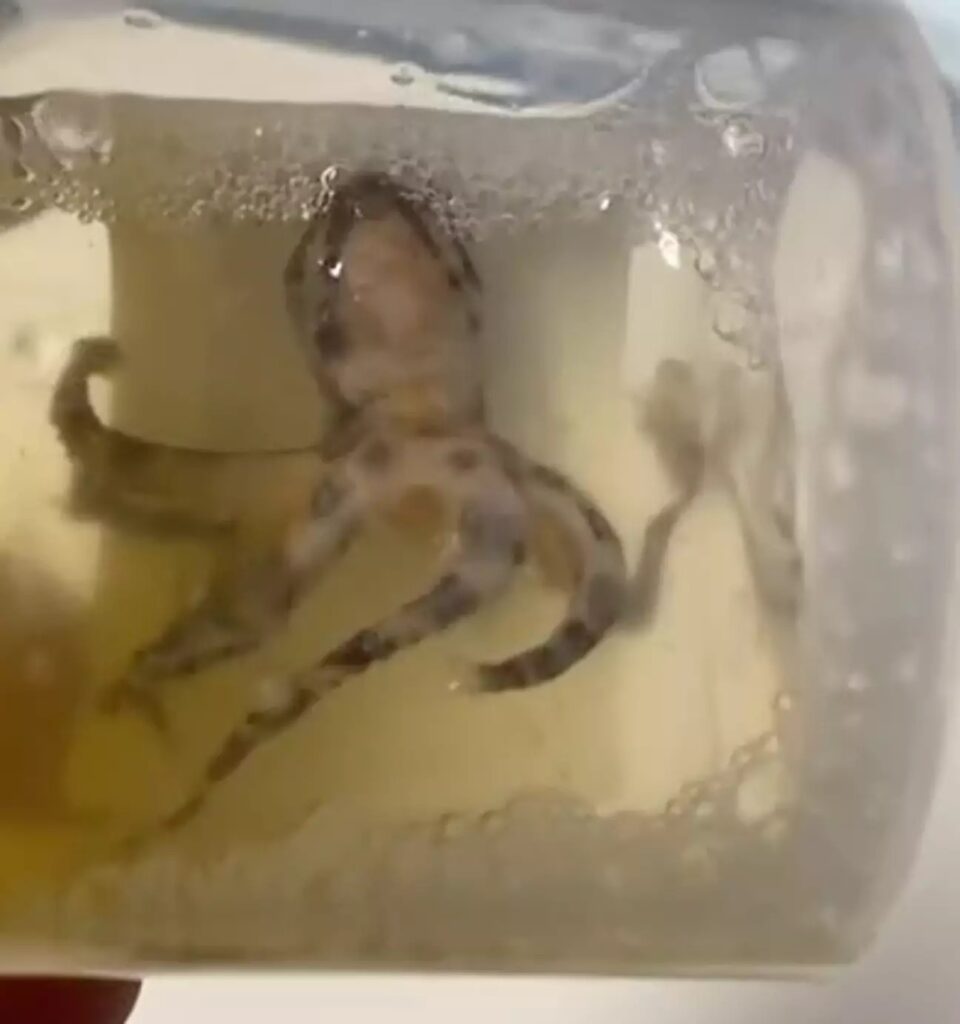
In a harrowing incident, an 18-year-old Australian teen, Jacob Eggington, narrowly escaped death after being bitten by one of the most toxic animals on Earth. The dangerous encounter took place while he was collecting shells on the beach at Shoalwater, Perth.
While enjoying a day at the beach, Eggington discovered an eye-catching shell in the water. Unbeknownst to him, the seemingly innocent shell harbored a deadly secret – a blue-ringed octopus, one of the world’s most toxic creatures.

Eggington, unaware of the danger lurking within the shell, placed it in his pocket to show his six-year-old niece. It was only when he approached her that he noticed the lethal octopus. The small creature, when alarmed, produces tetrodotoxin, a highly toxic substance that paralyzes muscles and can be fatal.
Realizing the danger, Eggington quickly alerted his family to the presence of the octopus. His brother, Joshua, recounted the incident, stating, “As soon as he saw the octopus, he yelled really loud. I grabbed the baby.” The timely warning prevented a potentially disastrous situation, as Eggington’s niece could have ended up holding the toxic creature.
Upon inspection, Eggington found a small, painless bite on his leg from the octopus. The toxin it releases can be fatal within 30 minutes, but its effects may also have a delayed onset, leading to death up to 24 hours later.

Emergency services were immediately called, and Eggington was stretchered off the beach to Rockingham General Hospital, where he received more than six hours of treatment. Fortunately, his quick recognition of the danger played a crucial role in saving his life.
Marine scientist Jennifer Verduin cautioned that blue-ringed octopuses are common at Perth beaches. Despite their small size (rarely more than 12cm) and usually well-camouflaged appearance, these creatures can be highly dangerous. Verduin, emphasizing their ability to hide, advised beachgoers to exercise caution, with some opting for reef shoes for added protection.

In case of a sting, medical professionals recommend keeping the affected person as still as possible and immediately calling emergency services. The incident serves as a stark reminder of the hidden dangers that can lurk in seemingly harmless beach finds.

Leave a Reply